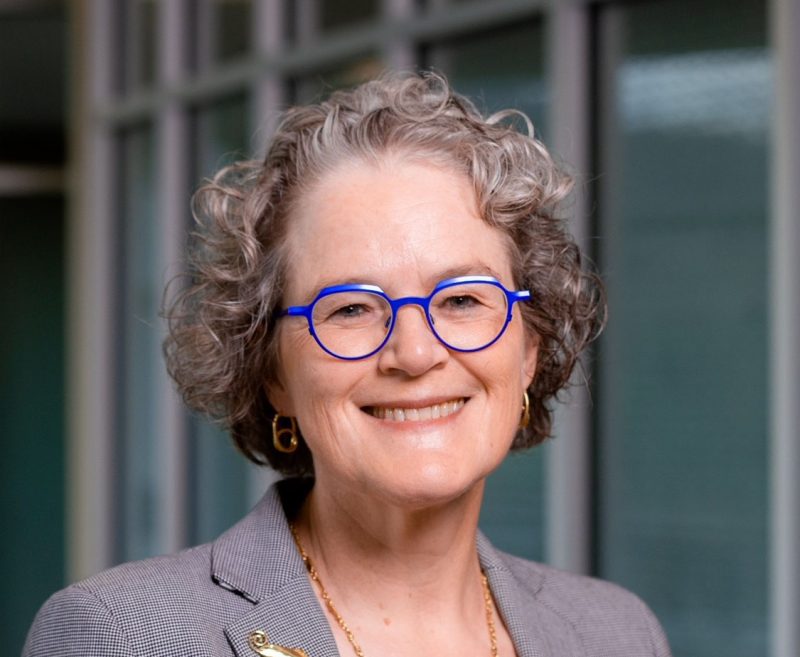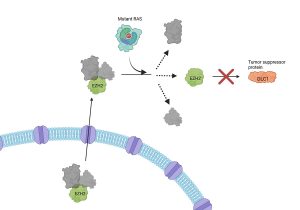NIH selects Dr. Jeanne Marrazzo as director of the National Institute of Allergy and Infectious Diseases

News Release
Wednesday, August 2, 2023
Lawrence A. Tabak, D.D.S., Ph.D., acting director for the National Institutes of Health, has named Jeanne M. Marrazzo, M.D., as director of NIH’s National Institute of Allergy and Infectious Diseases (NIAID). Dr. Marrazzo is currently the director of the Division of Infectious Diseases at the University of Alabama at Birmingham. She is expected to begin her role as NIAID Director in the fall. NIAID conducts and supports basic and applied research to better understand, treat and ultimately prevent infectious, immunologic and allergic diseases.
“Dr. Marrazzo brings a wealth of leadership experience from leading international clinical trials and translational research, managing a complex organizational budget that includes research funding and mentoring trainees in all stages of professional development,” said Dr. Tabak. “I look forward to welcoming Dr. Marrazzo to the NIH leadership team. I also want to extend my gratitude to Hugh Auchincloss, Jr., M.D., for serving as acting director of NIAID after long-time director Anthony S. Fauci, M.D., stepped down in December 2022.”
As NIAID director, Dr. Marrazzo will oversee NIAID’s budget of $6.3 billion, which supports research to advance the understanding, diagnosis and treatment of infectious, immunologic and allergic diseases. NIAID supports research at universities and research organizations around the United States and across NIAID’s 21 laboratories, including the Vaccine Research Center on NIH’s main campus in Bethesda, Maryland, and the Rocky Mountains Laboratories in Hamilton, Montana. NIAID also has a unique mandate to respond to emerging and re-emerging public health threats at home and abroad. The NIAID research response to outbreaks of infectious diseases, from HIV to Ebola to COVID-19, has led to new therapies, vaccines, diagnostic tests and other technologies.
Dr. Marrazzo’s research in discovery and implementation science has focused on the human microbiome, specifically as it relates to female reproductive tract infections and hormonal contraception; prevention of HIV infection using biomedical interventions, including PrEP and microbicides; and the pathogenesis and management of bacterial vaginosis, sexually transmitted diseases in HIV-infected persons and management of antibiotic resistance in gonorrhea. She has been a principal investigator on NIH grants continuously since 1997 and has served frequently as a peer reviewer and advisory committee member. Dr. Marrazzo also has served as a mentor to trainees at all stages of professional development, including on NIH-funded training grants, and was the recipient of the American Sexually Transmitted Diseases Association’s Distinguished Career Award, the highest recognition of contributions to research and mentoring in the field.
Dr. Marrazzo is a Fellow of the American College of Physicians and of the Infectious Diseases Society of America and is board certified in infectious disease. She earned her bachelor’s in biology from Harvard University, Cambridge, Massachusetts; her M.D. from Thomas Jefferson University, Philadelphia; and a Master of Public Health in Epidemiology from the University of Washington, Seattle. Dr. Marrazzo also has chaired the American Board of Internal Medicine (ABIM) Council, and the ABIM Infectious Disease Specialty Board.
NIAID conducts and supports research—at NIH, throughout the United States, and worldwide—to study the causes of infectious and immune-mediated diseases, and to develop better means of preventing, diagnosing and treating these illnesses. News releases, fact sheets and other NIAID-related materials are available on the NIAID website.
About the National Institutes of Health (NIH):
NIH, the nation’s medical research agency, includes 27 Institutes and Centers and is a component of the U.S. Department of Health and Human Services. NIH is the primary federal agency conducting and supporting basic, clinical, and translational medical research, and is investigating the causes, treatments, and cures for both common and rare diseases. For more information about NIH and its programs, visit www.nih.gov.
NIH…Turning Discovery Into Health®








